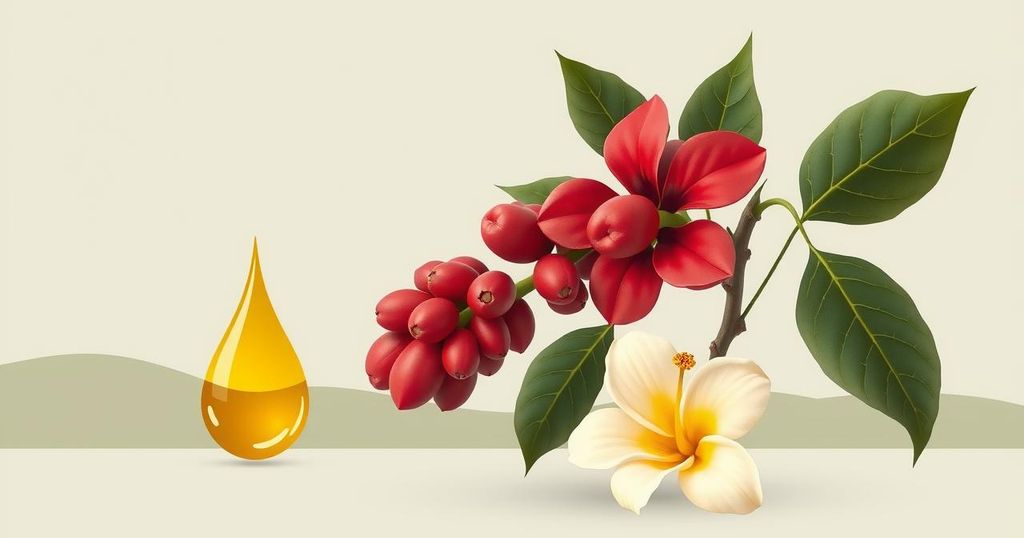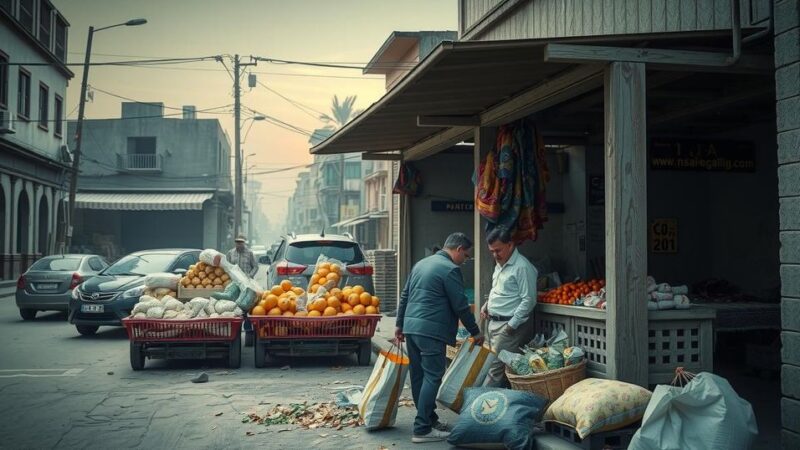President Trump has imposed a 25% tariff on Colombian goods, potentially leading to higher prices for U.S. consumers. Major affected imports include petroleum, coffee, and cut flowers, worth billions in trade. This action stems from recent U.S. immigration disputes and represents a broader use of tariffs in international economic policy. Consumers should brace for price increases in everyday items due to this policy shift.
President Donald Trump recently announced a 25% tariff on all goods imported from Colombia, a decision that will likely increase prices for several everyday items in the United States. This move was made following Colombia’s refusal to accept U.S. deported migrants on a military flight. Trump indicated that within a week, the tariffs could escalate to 50%.
Despite not being a major trading partner, Colombia’s economic relationship with the U.S. is significant, with bilateral trade amounting to $53.5 billion in 2022. The United States enjoys a trade surplus of $3.9 billion with Colombia. Among Colombia’s key exports to the U.S., petroleum stood out at approximately $6 billion, demonstrating the importance of oil in the trade dynamic.
Coffee ranks as Colombia’s second-largest export to the U.S., valued at $1.8 billion, accounting for 20% of U.S. coffee imports. This could further burden American consumers, who are already experiencing increased prices, with coffee costs rising by 3.8% in 2024 alone. Additionally, cut flowers, with exports worth $1.6 billion, are among the affected goods along with gold and aluminum structures.
These tariffs surface amid broader international tensions, linked to the Trump administration’s immigration policies addressing undocumented migrants. Other countries, including Mexico and Brazil, have expressed discontent with U.S. policies on migrant deportations. Trump emphasized a firm stance against Colombia’s treatment of migrants, insisting on compliance with U.S. legal obligations regarding the return of migrants.
In summary, President Trump’s tariffs on Colombian goods are set to impact several vital imports, including petroleum, coffee, and cut flowers. This decision is rooted in unresolved immigration concerns, indicating a shift in trade practices that could significantly impact American consumers. As tariffs could rise further, it is crucial to monitor the potential economic repercussions for both nations.
The context for the increased tariffs on Colombian goods originates from ongoing immigration disputes. President Trump’s administration has implemented stringent measures targeting undocumented migrants. The tariffs function as a financial penalty aimed at Colombia for its refusal to cooperate with U.S. policies regarding the repatriation of migrants. This economic strategy also demonstrates Trump’s wider approach to using tariffs as leverage in international relations, particularly in foreign trade dynamics.
The implementation of tariffs by President Trump on goods from Colombia serves both as a punitive measure in response to immigration disagreements and as a strategy to influence economic relations. American consumers may face higher prices for crucial imported items, particularly coffee and petroleum, highlighting the interplay between trade and international policy. As these developments unfold, the future impact on both Colombian exporters and U.S. consumers will require careful consideration and monitoring.
Original Source: www.cnbc.com





